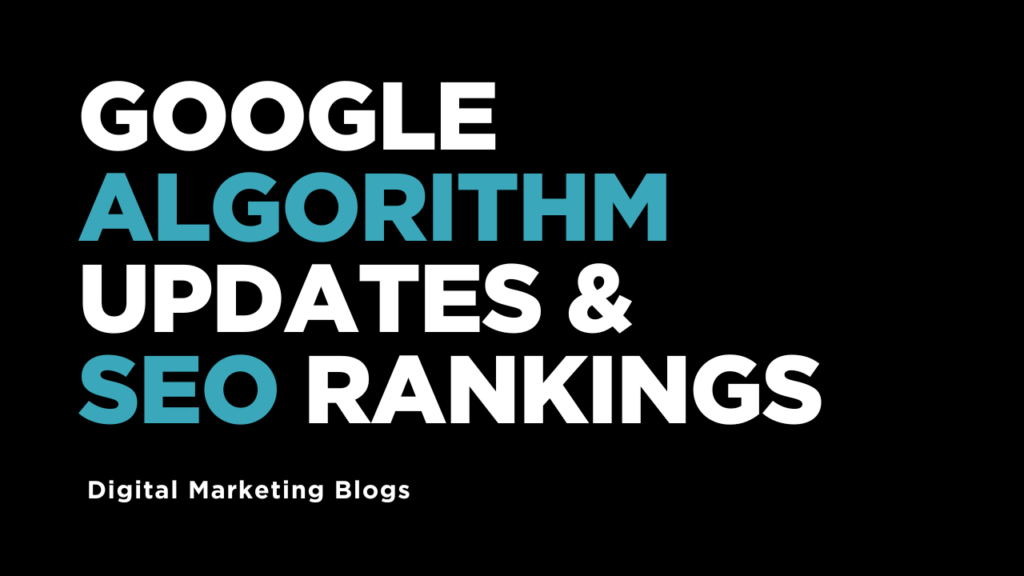Search engine optimization (SEO) is always evolving. One of the main reasons behind these changes is the frequent updates Google makes to its algorithm. These updates can significantly affect how websites rank in search engine results pages (SERPs). Whether you are a website owner, digital marketing strategist in Calicut, or an SEO learner, understanding how these updates work is crucial.
In this blog, we will explore what Google algorithm updates are, the types of updates that occur, their impact on websites, and how you can stay ahead of the changes to maintain or improve your rankings.
What Is the Google Algorithm?
The Google algorithm is a complex system used to retrieve data from the search index and deliver the best possible results for a query. It uses a combination of algorithms and ranking signals to decide which pages appear first. These signals include keywords, relevance, quality of content, backlinks, mobile-friendliness, user experience, and more.
Google doesn’t just use one algorithm. It uses a set of rules and machine learning models to evaluate each page and decide its rank. These rules are not static. They change over time to improve the user experience and ensure the best results.
What Are Google Algorithm Updates?
Google updates its algorithm regularly. Some updates are small and go unnoticed, while others are broad core updates that impact a large number of websites. The purpose of these updates is to make search results more relevant and accurate.
There are two main types of updates:
-
Core Algorithm Updates: These are broad updates that affect the overall algorithm. They usually focus on improving content quality and relevance.
-
Specific Updates: These target certain aspects like spam, backlinks, mobile usability, or page speed.
Examples of Major Google Algorithm Updates
Over the years, Google has released several major updates. Here are some of the most notable ones:
Panda (2011)
This update focused on content quality. It penalized websites with duplicate, low-quality, or thin content. It pushed site owners to create original and helpful content for users.
Penguin (2012)
Penguin targeted unnatural link building. Websites using black-hat SEO techniques like buying links or using link farms saw a significant drop in rankings.
Hummingbird (2013)
This update improved search precision. It helped Google better understand the intent behind a query instead of just matching keywords.
Mobilegeddon (2015)
With mobile usage increasing, this update gave preference to mobile-friendly websites. Those not optimized for mobile devices were pushed down in rankings.
BERT (2019)
BERT focused on natural language processing. It allowed Google to understand the context and intent behind search queries more accurately.
Helpful Content Update (2022)
This update promoted people-first content. It penalized websites that wrote only for search engines and not for users.
How Algorithm Updates Affect Website Rankings
Each update has different goals, but they all aim to make search results better for users. Here’s how they can affect your website:
1. Rankings Can Rise or Fall
After an update, you may notice a sudden change in your rankings. If your content aligns with Google’s new focus, you might see an improvement. If not, your rankings may drop.
2. Traffic Fluctuations
Since rankings affect visibility, any change in ranking can lead to an increase or decrease in traffic. A major drop in traffic could mean your site was negatively impacted.
3. Impact on Authority and Trust
Some updates focus on E-A-T (Expertise, Authoritativeness, Trustworthiness). If your website lacks these elements, you may lose ranking for important keywords.
4. Penalties for Bad Practices
Websites using black-hat techniques like keyword stuffing, duplicate content, or unnatural backlinks may be penalized. These penalties can be hard to recover from if not addressed quickly.
5. Focus on User Experience
Google is increasingly prioritizing user experience. Updates now consider factors like page load speed, mobile usability, and site security. Ignoring these can lead to lower rankings.
What Should You Do After an Algorithm Update?
Here are some best practices to follow when a new update rolls out:
1. Analyze Website Performance
Use tools like Google Analytics and Google Search Console to check traffic, bounce rate, keyword rankings, and impressions. Look for sudden changes.
2. Identify What Changed
Read official announcements from Google or trusted SEO blogs. Understand what the update targeted. For example, was it focused on spam, backlinks, or content quality?
3. Audit Your Website
Do a complete SEO audit. Check for technical issues, duplicate content, low-quality pages, slow-loading elements, or broken links.
4. Improve Content Quality
Always focus on creating useful, well-written, and relevant content. Write for your audience, not just for search engines.
-
Use original data or insights.
-
Make your content easy to read and navigate.
-
Answer common questions your audience may have.
5. Build Natural Backlinks
Earn links through valuable content, guest posting, and collaborations. Avoid buying links or joining link schemes.
6. Improve User Experience
Make your site mobile-friendly, improve loading speed, and simplify navigation. Good UX contributes to higher engagement and better rankings.
7. Stay Updated
Keep yourself informed about algorithm changes. Follow Google Search Central, SEO forums, and leading experts like Search Engine Journal or Moz.
How Often Does Google Update Its Algorithm?
Google makes thousands of updates each year. Most are minor, but core updates are significant and happen about three to four times a year. These core updates are publicly announced because they can cause large-scale changes in rankings.
Can You Recover From a Google Algorithm Penalty?
Yes, but it takes time and effort. Here’s what you should do:
-
Identify the reason behind the penalty.
-
Fix the issues completely.
-
Submit a reconsideration request if it’s a manual penalty.
-
Monitor your performance and wait for the next update.
Improving your website should always be an ongoing process, not just a response to a penalty.
Why This Matters for Digital Marketing Professionals
If you are a digital marketing trainer in Kerala, staying updated on Google algorithm changes is essential. Your students and clients rely on you for accurate strategies. Understanding how these changes work helps you adapt campaigns, create better content, and avoid outdated practices.
For a digital marketing strategist in Calicut, mastering this knowledge improves your ability to build sustainable SEO strategies for businesses. Algorithm updates are not threats but opportunities to improve your website and stay ahead of competitors.
Key Takeaways
-
Google algorithm updates are frequent and influence your site’s visibility.
-
These updates aim to improve user experience, content quality, and relevance.
-
Understanding the types of updates can help you maintain or grow your rankings.
-
Always focus on ethical SEO practices, high-quality content, and user experience.
-
Staying informed and regularly auditing your website is key to long-term success.
Final Thoughts
Google’s algorithm will continue to evolve. Rather than trying to game the system, focus on long-term strategies. Create valuable content, follow SEO best practices, and think about what users need. This mindset will help you grow your online presence steadily, regardless of the updates.



